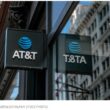Michigan includes commercial utility usage in its 700 MHz waiver request
Officials in the state of Michigan recently asked the FCC to grant a 700 MHz broadband waiver in the state to build a shared LTE network for first responders that also would support commercial utility users as part of a public/private partnership.
Michigan’s Public Safety Communications System (MPSCS) submitted the waiver request, noting that the governance structure that is used for Michigan’s statewide land-mobile-radio system also could be used to oversee the deployment and operation of a 700 MHz LTE system for first responders. Noting that “electric utilities protect the safety of life, health or property of Michigan citizens,” the MPSCS proposal also calls for the broadband wireless network to serve the needs of commercial utility companies such as Consumers Energy.
“Public/private partnerships with the utility companies expand the user base of the network to help lower the cost of the system, will extend our emergency response capabilities in our mission to protect the public, and are an integral part of the deployment of this much needed network, as they bring the dedicated funding required for its construction in return for use of the network,” the MPSCS filing states.
Utilities would have secondary-use access to the LTE network, but that does not mean that the utilities would be kicked off the network completely when public-safety users are responding to an emergency in a given area, according to the filing.
“The many levels of priority, pre-emption, and rate limiting available with today’s LTE technology can easily accommodate the different priority levels required for the low bit rate, ancillary fixed use applications and mobile voice and data applications utilities would utilize on the public safety broadband network,” the filing states. “In sum, a utility will participate in a graceful prioritization scheme on the public safety network allowing for critical utility functions to continue and still meet the criteria of secondary use of the spectrum.”
This type of public/private partnership was proposed by the state of Nevada more than a year ago, sparking debate regarding which users should be allowed on much-anticipated 700 MHz designed primarily for public safety. So far, the FCC has not issued a ruling on the matter.
Utilities are seeking spectrum for many smart-grid applications and other communications functions, and they share public safety’s desire to have these critical communications transmitted over a dedicated network as opposed to depending on a commercial network that may not be as reliable or available as needed.
“In the abstract, I can say that it makes sense to try to combine efforts,” said Brett Kilbourne, director of regulatory services and deputy counsel for the Utilities Telecom Council (UTC). “We’re in need of broadband spectrum below 1 GHz, and public safety is in need of infrastructure, so it’s a pretty good marriage of interests. There are also other benefits that go along with it, such as coordination during emergencies.”
Some of the other benefits include the fact that utilities typically have considerable property and right-of-way access to locations that would be ideal LTE infrastructure sites, would provide additional users on a network that will be designed to have excess capacity and can supply an extra funding source that should be valuable, particularly during tough economic times.
Kilbourne said he was “somewhat surprised” that Michigan included commercial utilities in its waiver request because of the uncertainty surrounding eligibility but said UTC hopes “it’s going to be a trend” in the future.
“The economic reality is that they [public-safety entities seeking to deploy LTE] need the utility companies,” Kilbourne said. “It’s sort of interesting to note that, as far as the Michigan waiver goes, that this was really a public-safety initiative to reach out to utilities. That said, I think a lot of utility companies do realize that it makes sense to try to combine efforts.”
Related stories:

















